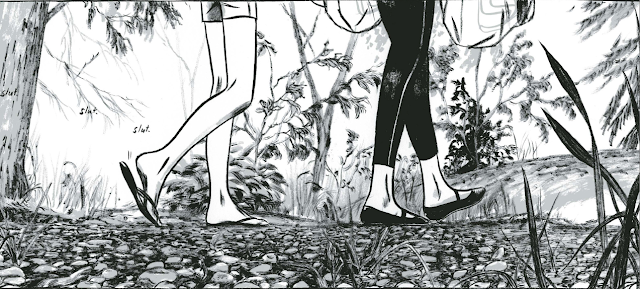Maus by Art Spiegelman
Art Spiegelman’s Maus is
a deeply impactful and memorable work but by no means an easy read; stories of
cruelty that we, as a society are capable of, never can be. The very first
words I noted down for my response were “it hurts.” Though the tone of the narrative
feels devoid of sentimentality, you can’t help but grieve with him, for him.
For the suffering of his family and his own burden of guilt for not having
had to suffer similarly; for the loss of the opportunity to reconcile with his
father; for the loss of his mother, her story, and several other stories that
will remain untold.
With Maus,
Spiegelman makes us confront the harsh reality of the Holocaust and the
horrifying mark it has left on generations to come, while he himself attempts
to confront the root and nature of his own sorrow. The crudeness of his drawings
emphasizes the harshness of that/this world. He parallels his father’s story of the Holocaust with his own interactions with his father and mundane details of their
relationship. Spiegelman makes us aware of his experience of creating Maus, reflecting on his creative
process, inhibitions, dilemmas and moral obligations. His honesty makes his
sorrow and his parents’ hardships all the more harrowing for us.


Comments
Post a Comment